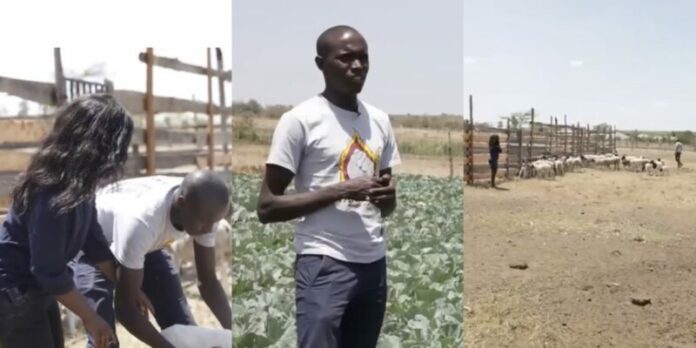Data from the Kenya National Bureau of Statistics has revealed an alarming trend in Kenya’s population workforce.
New graduates are entering the job market yearly, only to find a congested labour force that’s not willing to absorb them.
77% of youths aged 20 to 29 remain unemployed for more than a year. Job scarcity is itself a slow and choking pandemic whose effects are felt in the lives of the youth. What alternatives are there?
One might argue that they should continue to tarmac until luck shines a way for them. But is it sustainable for the unemployed 3.2 million Kenyans?
Oscar Kasirimo graduated from the Multimedia University with a Bachelor’s degree in Applied Communication. He is among the millions who failed to secure sustainable jobs after school.
As usual, with a believing spirit, Oscar tarmacked for a while, following every single lead at his disposal. It was a futile endeavour. He decided to return home to try his luck in farming.
“I had been applying for jobs but unfortunately there were no jobs and so I sat down with my dad and we decided to do farming because we had the resources,” said Oscar.
This is how Oscar settled on farming at his father’s land in Kajiado. Oscar has planted cabbages, onions and a few maize & tomatoes.
His primary focus is mostly on the Copenhagen cabbages because they do well in arid and semi-arid areas. The crop has a rather ‘quick return’ as it takes 3 months to mature.
“We like it because it’s prone to this kind of weather and they don’t get affected by diseases or pests easily and they mature very fast,” he noted.
The farmer also receives support from the Kajiado County government, in terms of subsidies for pesticides and fertilizers.
“We normally get an expert from the county government who assist us with planting and procedure for applying fertilizer,” Oscar added.
“We do weeding after every two weeks, there’s a lot of weed in this farm because we use a lot of natural manure. We get manure from home because we have a lot of cattle and sheep.”
Kasirimo sources his water from a borehole that is specifically drilled for farming purposes. He stated that they are contemplating transitioning to solar energy to pump water to the farm.
“We are hoping to install solar panels soon because electricity is really expensive. We hope solar will help us cut the cost,” he said.
Peter Marwa: Farmer who quit job hunting now making millions from Onion farming
The pricing of the cabbage depends entirely on size. Bigger cabbages cost more than smaller ones.
“When we started, we were selling locally before we expanded to towns. When we increased production, we started selling at Kitengela and Athi River markets.”
While farming seems like a lucrative option for youth who are struggling to get employment, it also has its own challenges.
For Oscar Kasirimo, the heaviest burden he shoulders is the pest infestation which is encouraged by the area being semi-arid.
“Pests thrive in this kind of weather, they really affect us. Wild animals like the rabbits are also a menace in this area,” he said.









